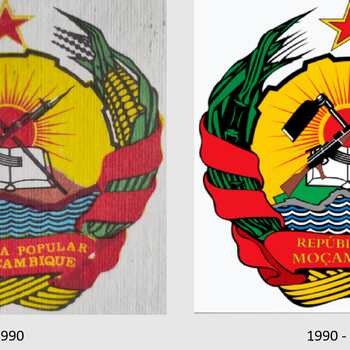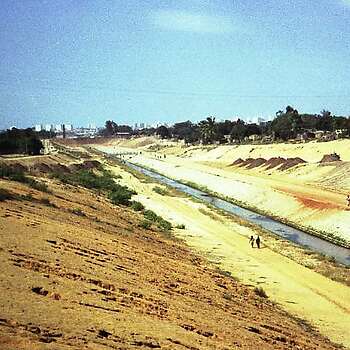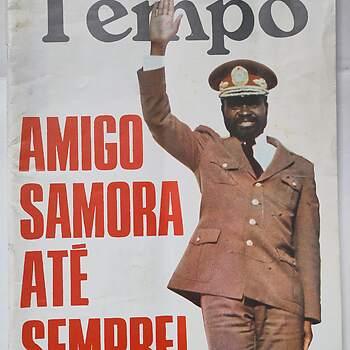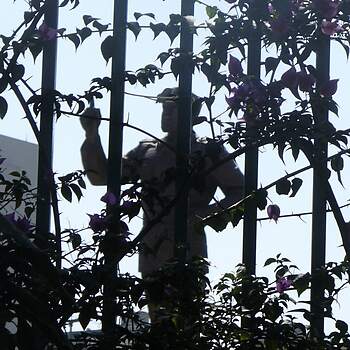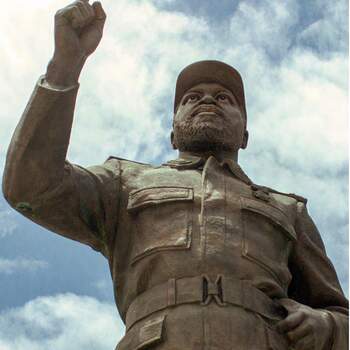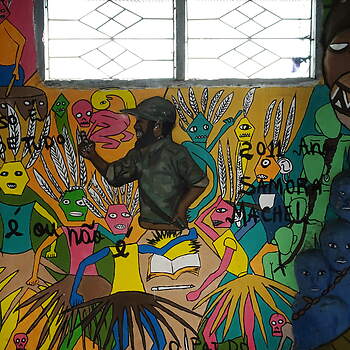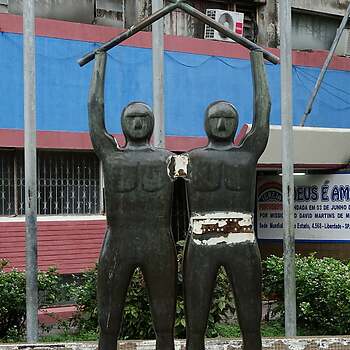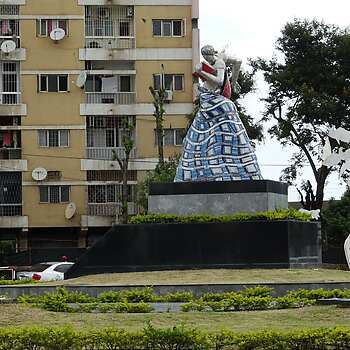A revolutionary start
Mozambique gained independence in June 1975, just one year after the Carnation Revolution in Portugal (April 25, 1974), which was partly driven by opposition to colonial wars in Africa. Following independence, Mozambique became a one-party state, governed by FRELIMO, the Mozambique Liberation Front. The party embraced a Marxist-Leninist ideology, focusing on a centrally controlled economy and the implementation of social welfare programs.
In the early years, many companies and properties were nationalized. FRELIMO also focused on improving education, which was in a dire state, with 92% of the population having not completed primary school. To address the shortage of qualified professionals, many expatriates were recruited under local contracts, known as "cooperantes." FRELIMO aimed to avoid the mistakes made by other African states, where foreign consultants, donors, and NGOs quickly overshadowed often understaffed local administrations.
Multiple challenges
However, after a few promising years, the economy stagnated and began to decline. In 1977, the Limpopo Valley was hit by severe flooding, which led to a resettlement policy that faced strong resistance from the population.
The internal war, backed by South Africa and former Rhodesia (now Zimbabwe), between FRELIMO and RENAMO (Mozambican National Resistance), further destabilized the country. This conflict caused massive migration, with over 4 million people displaced internally and 1.7 million fleeing to neighboring countries like Malawi (Wikipedia). By the mid-1980s, FRELIMO’s control was limited to the major cities and their surrounding areas.
In addition to the war, the economy suffered from frequent natural disasters and poor management in state-run enterprises and government administration. The droughts of 1979 and 1981 led to the deaths of about 100,000 people and affected 10.75 million people (Almeida, 2018). The drought of 1991 affected 3.3 million people. The war exacerbated the impact of these disasters.
The collapse of the Soviet Union in 1989 led to a reduction in support from Eastern Bloc countries. Tens of thousands of young Mozambican migrant laborers and students returned home, only to find themselves unemployed. The economy continued to worsen, with rampant inflation, shortages of basic goods and services, and a flourishing underground economy (known as "candonga"). By the end of the 1980s, violent crime had sharply increased. Despite these challenges, migrant labor to South Africa remained a key source of income for many families in southern Mozambique, though it had decreased after 1975.
Political reforms
The internal war ended in 1992 with the signing of the Rome Peace Treaty (Acordos de Roma), allowing approximately 5.7 million displaced people to return to their homes, an effort that required substantial resources. The country held its first free elections in 1994 under a multi-party democratic system. Stability was further enhanced by the democratic transition in South Africa. Mozambique became a member of the Commonwealth shortly thereafter.
Since then, FRELIMO has won every national election, though the party lost its majority in several provinces and municipalities during local elections. FRELIMO's fear of local opposition has hindered the decentralization process. The fear of opposition parties at the local level contributed to the retention of a more centralized governance structure, contrary to initial expectations (Büscher, 2021, p. 70).
Economic neo-liberal reforms
By the late 1980s, the economic decline and growing national debt forced FRELIMO to seek assistance from international financial institutions (IMF and World Bank). These negotiations began under President Samora Machel but accelerated after his tragic death in an unresolved plane crash in 1986. From 1987 onward, FRELIMO was compelled to adopt a neoliberal economic agenda.
The economic reform program, known as Structural Adjustment (ERP), was one of the harshest in Africa. It deepened the hardships of many Mozambicans, as access to basic social services was severely restricted. Austerity measures and low salary policies made government positions unattractive, eroding the capacity of the government administration. Privatization, decentralization, and devolution became the dominant trends.
After the tough rounds of Structural Adjustment, a more tempered reform agenda emerged with the Poverty Reduction Strategy Plan (PARPA) in 1996. This was followed by the introduction of General Budget Support in 2000-2001 (Batley et all 2006) and debt relief from the IMF.
References/Further reading
Almeida M.L.R.M. de (2018). ‘Mozambique’s disaster risk profile, a monographic issue’; in: Emergency and Disasters Vol 5, Nr 2 2018; University of Oviedo;
Batley R. L. Bjornestad, A. Cumbi (2006). Joint evaluation of General Budget Support 1994-2004; Mozambique Country Report; University of Birmingham/IDD;
Büscher Chris (2021). Water aid and trade contradictions: Dutch aid in the Mozambican waterscape under contemporary capitalism; PhD thesis University of London – SOAS;
Cahen, M. (2005).' Success in Mozambique?' In: Chesterman, S., M. Ignatieff and R. Thakur (eds.). Making states work: State failure and the crisis of governance. Tokyo/ New York/ Paris: United Nations University Press Canal de Moçambique (2016).
Chabal, P. (2002). ‘The construction of the nation-state’. In: Chabal, P. (ed.). A History of Post-colonial Lusophone Africa. London: Hurst & Company
Hanlon, J. (1984). Mozambique: The Revolution Under Fire. London: Zed Books
Hanlon, J. (1991). Mozambique: Who calls the shots? London: James Currey Publishers
Hanlon, J. (1998). ‘Van wie is Mozambique? IMF en donoren belemmeren wederopbouw’ in: Zuidelijk Afrika voorjaar 1998 Jrg. 2, nr. 1;
IMF/World Bank (2004). Republic of Mozambique: Evaluation of poverty Reduction Strategy Paper Process and Arrangements under the Poverty Reduction and Growth Facility. Washington DC © World Bank
Morier-Genoud, M. Cahen and D.M. do Rosário (eds.). The War Within. New Perspectives on the Civil War in Mozambique 1976-1992. Melton: James Currey
Newitt, N. (1995). A History of Mozambique. London: Hurst & Company
Newitt, N. (2002). 'Mozambique'. In: Chabal, P. (ed.). A History of Postcolonial Lusophone Africa. London: Hurst & Company
Pitcher, M.A. (2002). Transforming Mozambique. The Politics of Privatization, 1975-2000. Cambridge: Cambridge University Press
Wikipedia: on people affected by internal war: https://en.wikipedia.org/wiki/History_of_Mozambique
Original version 20/12/2024, D. Bouman
